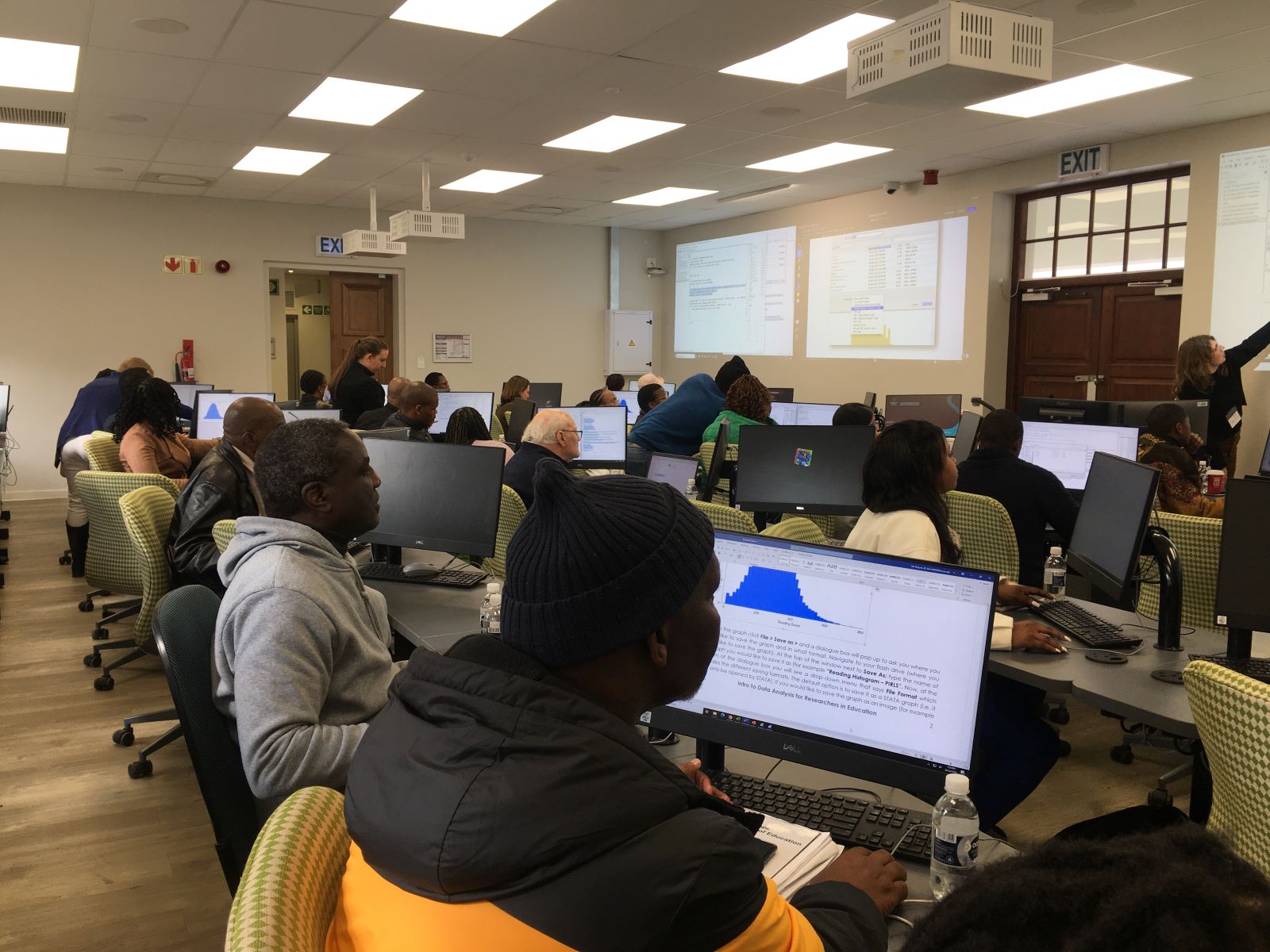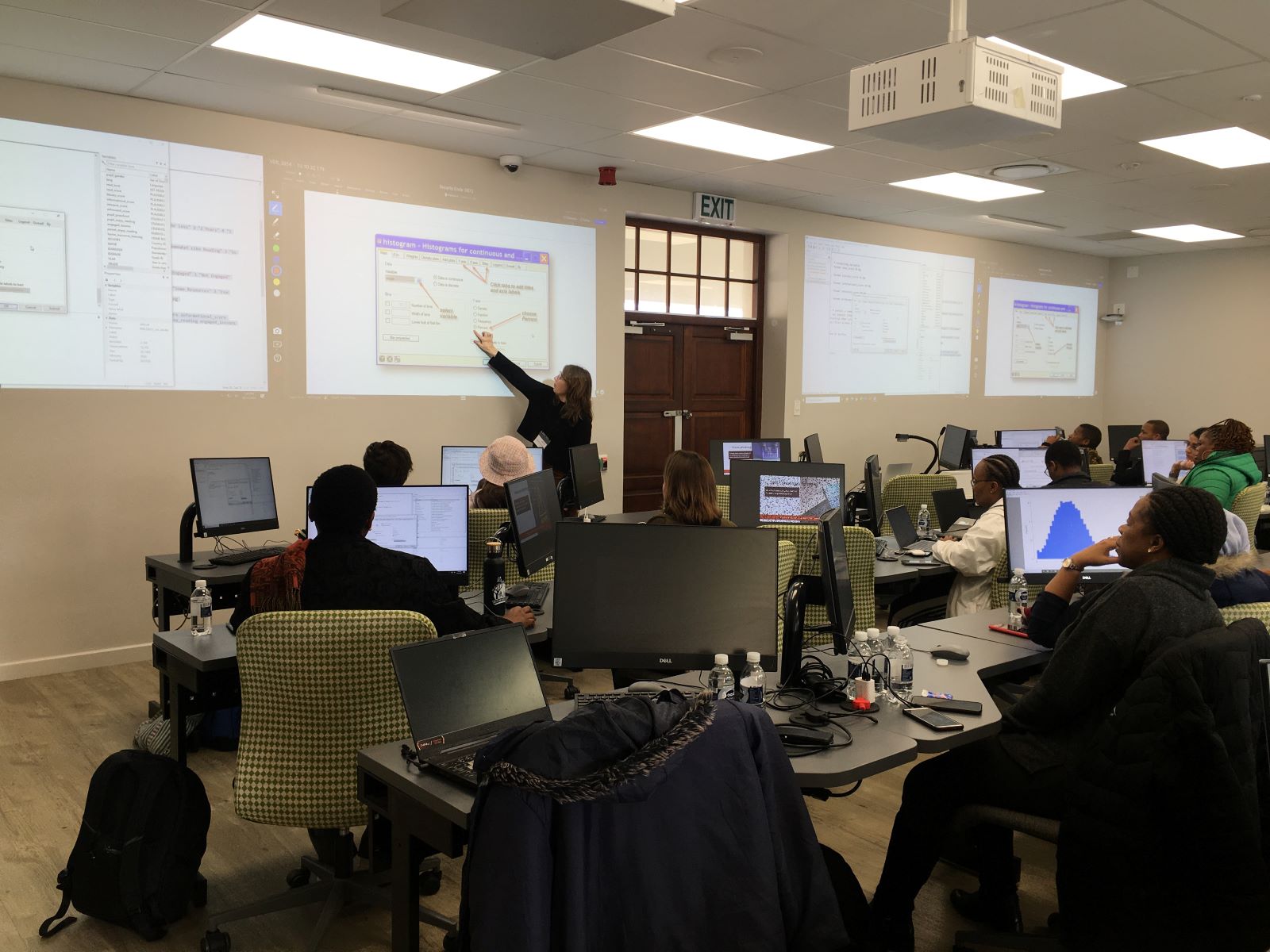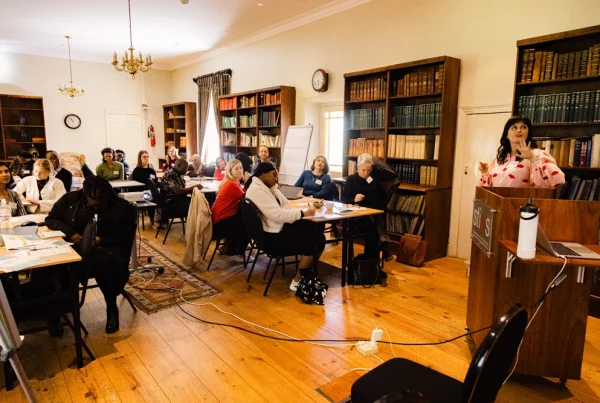RESEP has recently hosted a week-long introductory course on Quantitative Data Analysis in the Economics of Education. This course aimed to equip researchers in the education sector in South Africa with the quantitative and statistical tools needed to analyse the rich datasets available in this sector. Resep was privileged to host participants from the Council for Higher Education (CHE), the South African Council for Educators (SACE), the Department of Basic Education, and Umalusi, as well as employees from Provincial Departments of Education in the Northern Cape, Free State, Eastern Cape, Mpumalanga, and the Western Cape. Additionally, RESEP was pleased to host researchers from multiple NGOs and education research hubs, including Ikamva Labantu, Equal Education, the Rodger Federer Foundation, JET Education Services, the DGMT, Teach the Nation, Rhodes University, and the University of Cape Town.
 The course provided an introduction to the principles of analysing data through quantitative methods and was tailored for professionals who currently work in education policy who were seeking to enhance their quantitative data analysis skills. The course covered both the essential theoretical elements of statistics, as well as application of theory to the interpretation of quantitative analysis of education research in South Africa. Participants learned to apply quantitative analysis in Excel, and also learned to use STATA, which is a statistical programming language.
The course provided an introduction to the principles of analysing data through quantitative methods and was tailored for professionals who currently work in education policy who were seeking to enhance their quantitative data analysis skills. The course covered both the essential theoretical elements of statistics, as well as application of theory to the interpretation of quantitative analysis of education research in South Africa. Participants learned to apply quantitative analysis in Excel, and also learned to use STATA, which is a statistical programming language.
Throughout the course, the participants engaged in hands-on practical exercises which used real-world data, allowing them to apply theoretical concepts to practical scenarios. The course focused on teaching participants to visualise their analyses using effective tables and figures, and to interpret complex statistics, tables, and figures on education results in South Africa.
Additionally, this course served as a unique opportunity for networking between high-ranking government officials, education researchers, students, and policy makers.
The course received highly positive feedback from the participants for its interesting content and for the useful skills which were taught. The inclusion of sector-relevant examples and datasets was particularly appreciated, and provided a source of discussion, debate and reflection during both lectures and practical sessions. The participants also appreciated the structure of the course which encouraged them to practise the data analysis and coding skills, which was aided by 6 highly trained practical assistants who were available to answer any questions.
Resep is grateful to the Epoch & Optima Trusts for funding this short course, which was gratefully received by over 35 participants.








